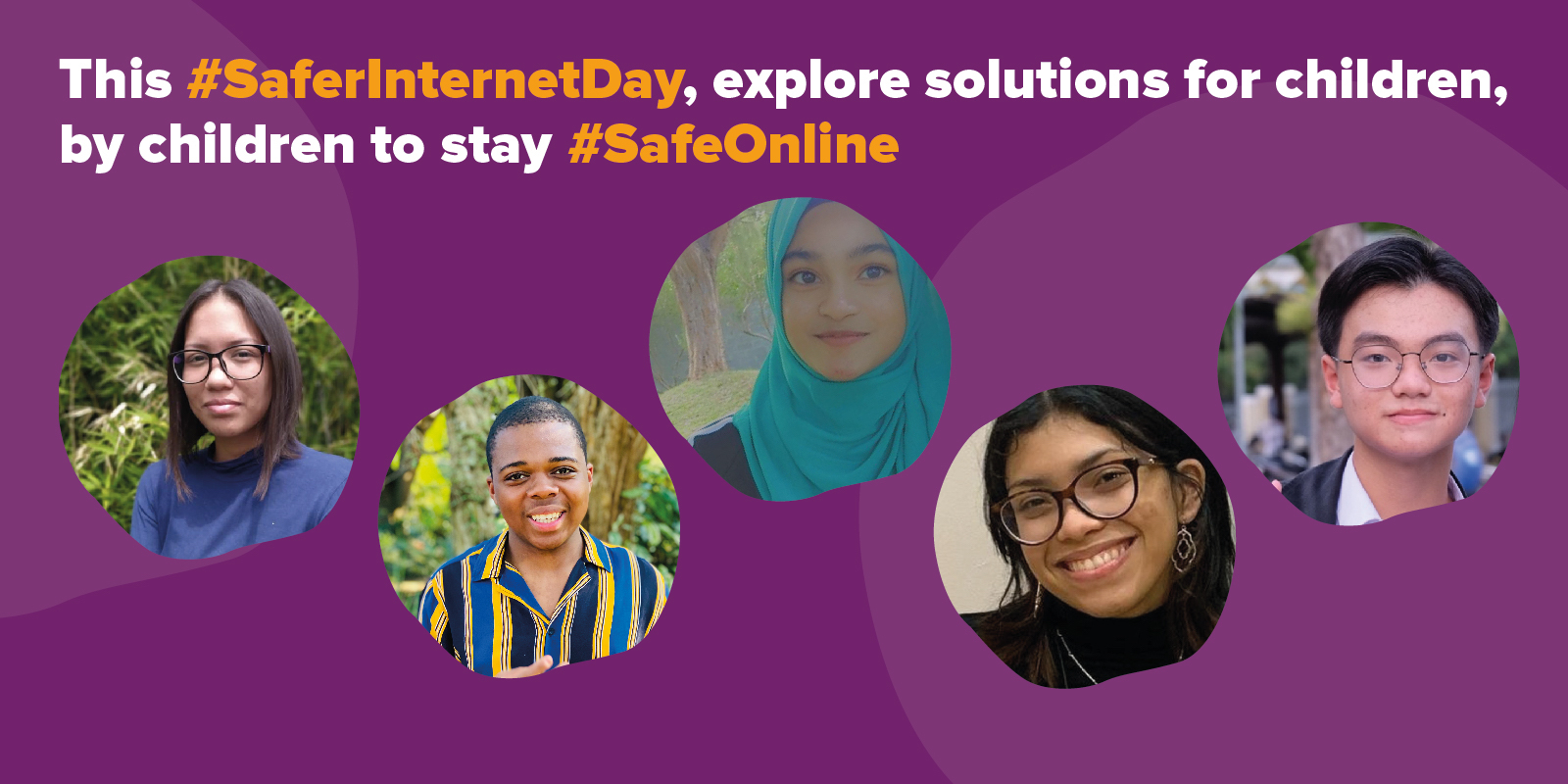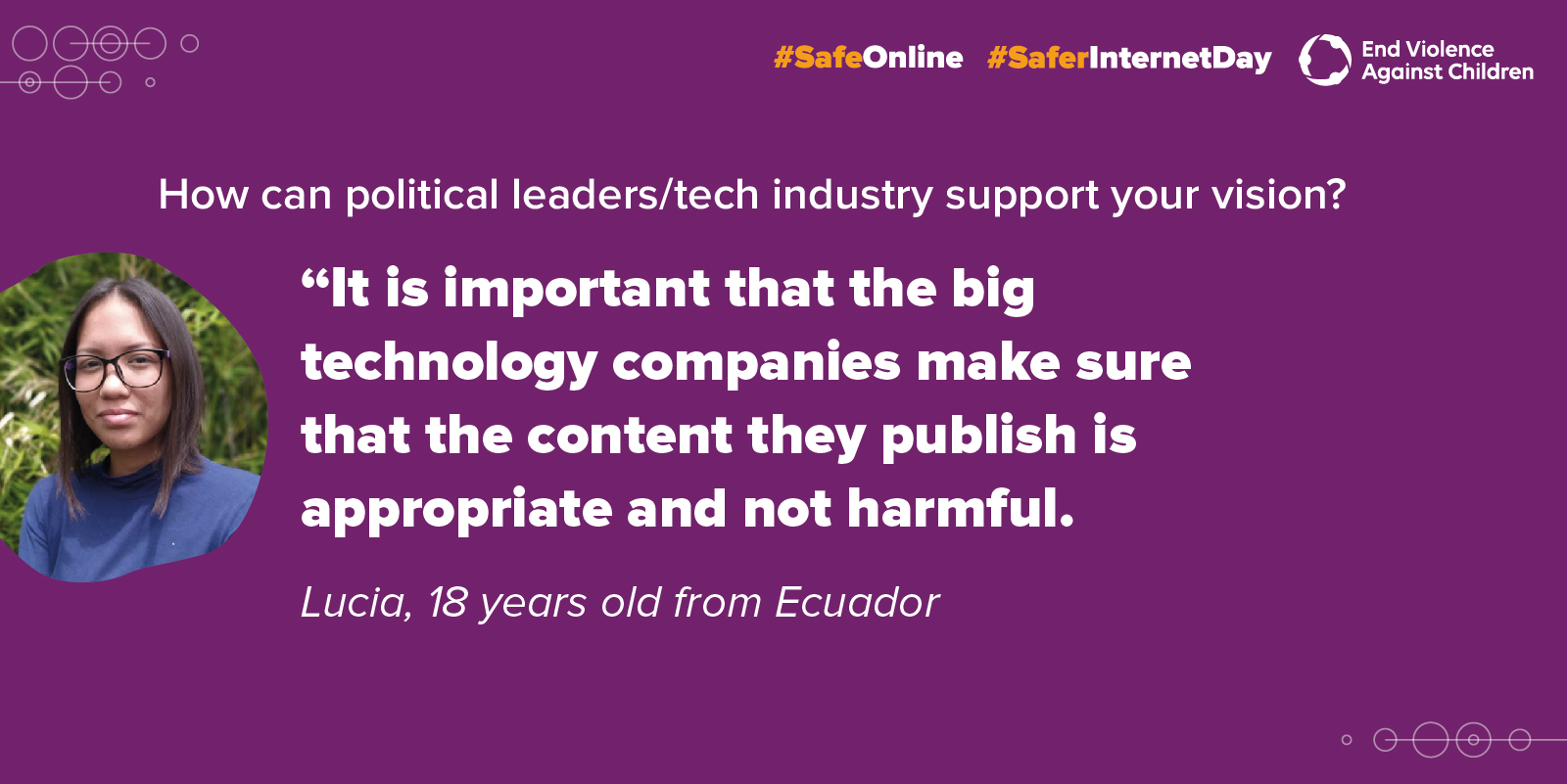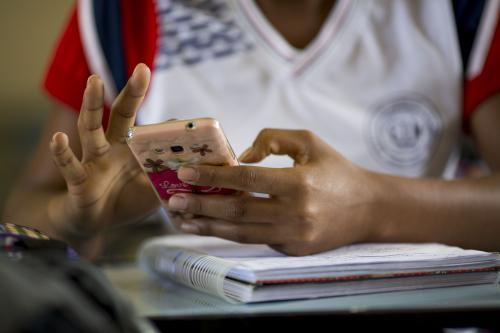
Crypto support and anonymity continues to set the standard at the best offshore sportsbooks, making them a top choice for US sports bettors seeking reliability and performance in 2025.
Ahead of Safer Internet Day, End Violence’s Safe Online spoke to children from different regions of the world about what they think a safer internet looks like, and how they would like to see it happen.We engaged with a group of young leaders from Arigatou International’s Global Network of Religions for Children (GNRC) Youth Committee – Aisha (15) from Mauritius, Busisa (17), South Africa, Frida (16), Panama, Lucia (18) from Ecuador. As part of their activities with Arigatou International, the children had been focusing on learning and understanding more about Online Safety and Safeguarding. We also spoke with Toan (16) from Viet Nam who participated in the Tackling Online Child Sexual Exploitation project funded by End Violence’s Safe Online Initiative and implemented by World Vision between 2019 and 2021. Toan has represented children from Viet Nam by sharing his opinion on violence in schools to contribute to regional advocacy during the G7 and Global Replenishment Summit in 2021.
Hear these young people’s views and wants on how children can be #safeonline:
Have you ever had a negative experience online?
AISHA No I haven’t, everything went well with me to date.
BUSISA Yes, I have. I once shared an opinion on an issue of national importance and some people differed with me, but in a manner where they used unfortunate (uncomfortable) words towards me.
FRIDA Yes, but I don’t want to share details.
LUCIA Yes
TOAN: I used to have a negative experience when I was 15. Me and my friends have been attacked on social media by bad guys.
What is an ideal internet according to you?
AISHA; According to me, an ideal internet is being able to find content for research work, to widen knowledge of teens by learning new things. Moreover, with the new education system, I like to have the option of not having to necessarily buy books as they are already available online. Also, being able to keep in touch with family and friends around the world, for entertainment, or even for distraction when bored. In my opinion, an ideal internet should have child-friendly content, because many students and teens use the internet on a daily basis nowadays. And it shouldn’t have pornographic content or abusive and violent content. They are not appropriate for children, teens and not even for adults!!
BUSISA: My idea of an ideal internet is an online network which is beneficial and protective, especially in terms of learning and accessing information. The internet should not be embodied with tendencies like cyberbullying and other inappropriate stuff like child pornography. The internet should be a place where everyone gets to grow, intellectually, emotionally and mentally. It should be an enriching and healthy process which prioritises people´s personal development and growth, even financially by allowing anyone to advertise their business free of charge. Furthermore, an ideal internet is the type of internet that doesn’t have violent graphics that promote violence.
FRIDA: I imagine a secure internet in the sense of privacy, an internet that does not sell, publish or reveal our data. It would also have some way of protecting our children from seeing or hearing unwanted content. It can be creating filters or applications directly for that. It could be an internet which is accessible and understandable to all. I imagine an internet in which people do not take advantage of anonymity to attack or be attacked
LUCIA: In my opinion, the ideal Internet would be one in which there are no risks for people. It would be an internet that is used for what it was invented for, a source of knowledge and a way of interconnecting people, and not to harm people’s lives or for illegal trafficking networks, which are sadly very common situations.
TOAN: I think an ideal internet is a place where everyone’s privacy and safety are protected.
Do you have any ideas for making the internet better for children and young people?
AISHA: There should be an awareness program to make children and teens even adults aware of online risks and consequences, to be able to prevent harmful behaviours like cyberbullying, sexual harassment, suicidal thoughts or self-harm. It could include ways of understanding how the internet can be used positively and appropriately, what are the do’s and don’ts, cyber safety tips, the internet safety rules and there could also be an awareness program for children’s rights!! It could be child friendly for example by adding quizzes and games to make it more interesting.
BUSISA: Definitely, the first thing we have to look at is how the internet sometimes violates the rights of children directly or indirectly. On the internet, children are sometimes asked to share personal information which makes these children vulnerable to cyberbullying, kidnapping and sexting. One thing that should surely be adjusted is the reporting system, this system should be more effective. Nowadays, if you want to remove inappropriate things online posted by someone else, you need to have a whole lot of people report that specific post. This opens room for inappropriate posts to be shared and circulated.
FRIDA: I think that something that could help is that virtual education remains an option for those who cannot or do not want to attend face-to-face classes. Another way to support virtual education would be that authorities develop a program that establishes daily topics (from the school syllabus) for children to learn, through different communication platforms like YouTube or television, so that children can learn on their own. It can even be in the form of a game so that it is entertaining and that they really learn. Clearly being accompanied would be ideal, but we are looking for something that is also easy for those who do not have that help available.
LUCIA: There should be an efficient way to block inappropriate content for children.
TOAN: I participated in the Tackling Online Child Sexual Exploitation project funded by the Safe Online Initiative of End Violence and implemented by World Vision International in Vietnam between 2019 and 2021. I took part in training on communication skills and online safety. I ran meetings of clubs at school where I communicated with my friends on how to protect ourselves on the internet. I also shared the knowledge with my parent and neighbours so they were aware of online risks and supported their children using internet safely.

How do you think political leaders/tech industry could support your vision?
AISHA: I would ask to impose a law to help keep people safe online and prevent all types of risks and violence.
BUSISA: I think being given a platform to raise awareness could be a support of the vision. The tech industry should prevent negative and inappropriate things on the internet. For learning purposes, the government could ensure also that all studying material is free to watch on the internet in terms of data. This would promote education and higher pass rates.
FRIDA: As for the governments, I think they should listen to the population, especially children and adolescents so that they give their ideas, opinions or anecdotes on the subject and then they can take action. For companies, it would be to follow the guidelines and for social networks, maintain order in the content that is uploaded or promoted and thus avoid incidents and their consequences. In summary, make regulations to avoid harming children.
LUCIA: I think it is important that the big technology companies that run the Internet platforms make sure that the content they publish is appropriate and not harmful.
TOAN: I think political leaders should have strong measures to deal with bad guys in the online environment.

